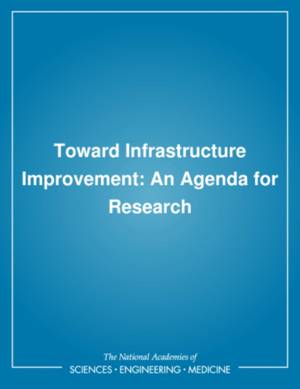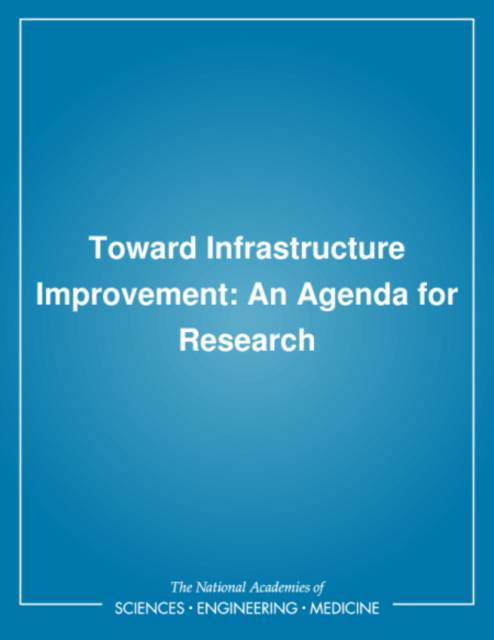
- Afhalen na 1 uur in een winkel met voorraad
- In januari gratis thuislevering in België
- Ruim aanbod met 7 miljoen producten
- Afhalen na 1 uur in een winkel met voorraad
- In januari gratis thuislevering in België
- Ruim aanbod met 7 miljoen producten
Toward Infrastructure Improvement
An Agenda for Research
National Research Council, Division on Engineering and Physical Sciences, Commission on Engineering and Technical Systems, Committee for an Infrastructure Technology Research AgendaOmschrijving
This book advises the federal government on a national infrastructure research agenda. It takes the position that the traditional disciplinary and institutional divisions among infrastructure modes and professions are largely historical artifacts that impose barriers to the development of new technology and encourages the government to embrace a more interdisciplinary approach. In order to be practical, the study focuses on infrastructure technologies that can be incorporated into or overlay current systems, allow for alternative future alternative future urban development, and are likely to have value cutting across the distinct functional modes of infrastructure. Finally, the report is organized according to seven broad cross-cutting areas that should promote interdisciplinary approaches to infrastructure problems: systems life-cycle management, analysis and decision tools, information management, condition assessment and monitoring technology, the science of materials performance and deterioration, construction equipment and procedures, and technology management.
Specificaties
Betrokkenen
- Auteur(s):
- Uitgeverij:
Inhoud
- Aantal bladzijden:
- 144
- Taal:
- Engels
- Reeks:
Eigenschappen
- Productcode (EAN):
- 9780309051446
- Verschijningsdatum:
- 1/02/1994
- Uitvoering:
- Paperback
- Formaat:
- Trade paperback (VS)
- Afmetingen:
- 152 mm x 229 mm
- Gewicht:
- 240 g

Alleen bij Standaard Boekhandel
Beoordelingen
We publiceren alleen reviews die voldoen aan de voorwaarden voor reviews. Bekijk onze voorwaarden voor reviews.









